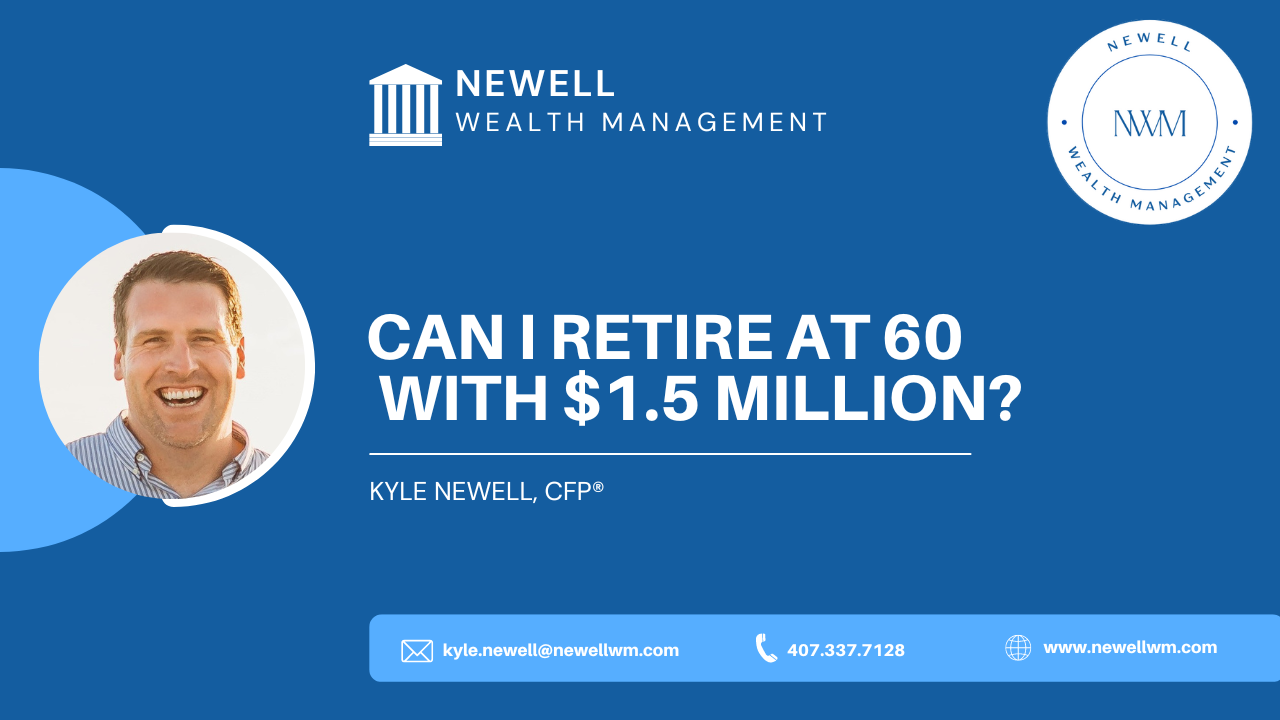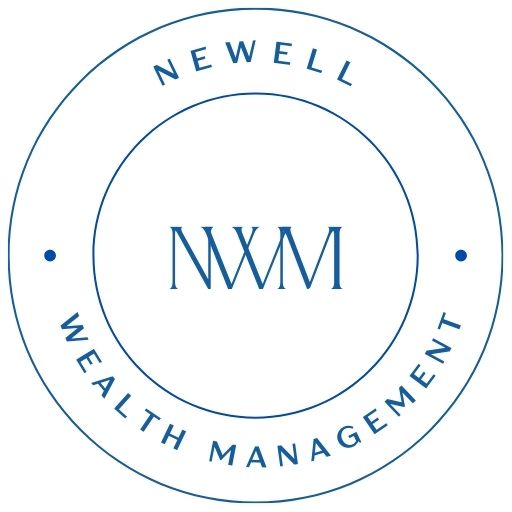Can I Retire at 60 with $1.5 Million?

Being able to retire at 60 with $1.5 million is a dream for many people. While 60 is a little early, you may be getting fed up with the corporate rat race and ready to be done. You may also be nearing a point where your ability to continue saving is less impactful than the amount you already have saved.
To determine if retiring at 60 with $1.5 million is a feasible option for you, there are a few things you should think about.

What are Your Expenses?
The viability of your assets depends on how much money you spend on a month-to-month basis and how much you want to spend.
The first thing to do is to determine your expenses. There are two essential parts to this task.
1) Work through a budget.
One way to do this is to use budgeting software. You can also use an Excel sheet. Some of my clients use good old-fashioned pen and paper. Whatever the method, the key is to write down everything you spend monthly.
Remember to include recurring expenses like property taxes, home insurance, and one-off expenses like vacations and Christmas gifts. These can often be significant enough to be accounted for when budgeting your expenses.
Once your current spending is outlined, think about what you want to spend. If you’re retiring at 60, more than likely, you don’t just want to spend your time sitting at home. Of course, some people want to enjoy being home reading, gardening, or other hobbies. Still, some of those hobbies cost money, like buying books or gardening tools.
If your retirement plans include buying a boat, a vacation home, traveling, or other bigger ticket expenses, you need to include them in your planning.
2) Edit Your Expenses.
Once you have a clear idea of your current expenses, you can begin to edit any expenses that would not necessarily be there in retirement. Note that editing is more than just taking away. It also includes adding.
The first expense to add is healthcare. You may currently have insurance through your company. The company is subsidizing a large portion of your insurance, making it affordable. This can lead to a false impression of what healthcare costs are.
A private policy in retirement can be costly depending on where you live, your health situation, and what type of health insurance you want. You need to do some research on what those expenses might be. Things to include are:
- Monthly premiums
- Out-of-pocket deductibles
- Co-pays
- In-network and out-of-network benefits
This helps you determine a reasonable estimate of your monthly healthcare costs in retirement.
There are some alternatives and ways to save on health insurance in retirement. Ultimately, you want to understand what the health care costs are. It’s likely to be one of the main expenses in retirement.
If your health care costs $2,000 a month, it can significantly impact your ability to retire at 60 with $1.5 million.
This is the step where you add other expenses you must account for. I referenced increasing your traveling and buying a vacation home earlier. You may want to finally hire somebody to do things you no longer wish to do around the house. What if you decide to move? More than likely, you would hire someone to help with that.
The Aging Component
Another thing to consider is the aging component of retirement. Retirement has three phases.
1) “Go-Go-Go Stage”
In this phase, you are young and healthy enough to travel, go out and do things, see things, etc. Depending on your age and retirement plans, this phase can last for a more extended period, 20 years or more. Retiring at 60 could make it an expensive phase.
2) “Slow Go Stage”
You may start slowing down in retirement. Your bucket list is complete. Maybe you will begin to become more of a homebody or stay local. You’re getting older and have done the things you want to do. It’s a little harder to get around, but you’re still healthy enough and able to do things around the house.
3) “No Go Stage”
This can be one of the costliest stages. You may require assistance to do things around the house. You may find that your health has declined in some way. Maybe cognitive disability or impairment has caused the need for further care. Additional care can be expensive, whether it’s in-home care, a nursing home, or assisted living.
Many people don’t want to be a burden on their families. They don’t want their family to have to care for them as they age. This factors into the assets you have when looking into how to retire at 60 with $1.5 million.
Inflation
Inflation is top of mind for all of us. It’s an ever-present current topic. From around 2009 to 2021, inflation wasn’t that big of a deal. The government was working to keep it low. There are periods historically where inflation starts to run off. This has been evidenced in the past few years.
Things cost more. Your expenses will most likely be different ten years from now. It’s essential to plan for the impact of inflation on your expenses. Inflation also impacts your assumed rate of return.
Where are Your Assets?
The type of account holding your retirement assets determines the taxability of the asset. Taxability is a significant potential cost in retirement. It’s essential to understand and pay attention to it.
You may have $1.5 million all in one account. A company 401k, for example. It may be spread over several types of accounts.
- 401k
- IRA
- Annuities
- Mutual funds
- Stocks
- Bank accounts
Any traditional retirement account will be taxed as ordinary income when you take the money out. Ordinary income includes your portfolio withdrawals and other sources of income such as pension or Social Security.
Knowing the location of your assets will give guidance on how taxation will work. You want to work with your financial advisor to plan for that expense in your projections and planning.
Let’s say you need $100,000 per year to live off of. You may have to take out $120,000 or more depending on your location, account taxation, etc.
Investment Strategy
Your strategy to generate income in retirement will greatly impact your ability to retire at 60 with $1.5 million. Solid investment strategy considers:
- Risk level
- Location of the investment
- Type of vehicle you’re investing in
- Financial goals
Example
You have $1.5 million with the same average return over 30 years.
Even though it’s the same average return, negative years at the beginning of that period increase your probability of running out of money over negative years in the end. If you retire at 60 and have an immediate 20% drop in your assets, it will significantly impact your ability to have enough money to make it all the way through retirement.
You need a prudent investment strategy that plans for the inevitable drops in the market. There is always risk in investing. However, you don’t want to be too conservative. Remember, the other thing that eats at your portfolio is inflation.
Strike a balance with a sweet spot between growth to keep up and beat inflation and giving you enough protection with portfolio withdrawals to provide the income you need. It’s about finding the right level of risk not to have significant losses that hamper your ability to have a sustained amount of money for the rest of your life, especially when you need it most.
Bringing It All Together
The short answer to whether you can retire at 60 with $1.5 million is yes, it’s possible. Assuming all of these things are in order and you’re planning appropriately. Each person has a different situation. If you’re looking for guidance on financial planning to retire at 60, or any age, I’m happy to help.
Important Information
Newell Wealth Management, LLC (“NWM”) is a registered investment advisor offering advisory services in the State of FL and in other jurisdictions where exempted. Registration does not imply a certain level of skill or training. The presence of this website on the Internet shall not be directly or indirectly interpreted as a solicitation of investment advisory services to persons of another jurisdiction unless otherwise permitted by statute. Follow-up or individualized responses to consumers in a particular state by NWM in the rendering of personalized investment advice for compensation shall not be made without our first complying with jurisdiction requirements or pursuant an applicable state exemption.
All written content on this site is for information purposes only and is not intended to provide specific advice or recommendations for any individual. Opinions expressed herein are solely those of NWM, unless otherwise specifically cited. Kyle Newell and NWM are neither an attorney nor an accountant, and no portion of this website content should be interpreted as legal, accounting or tax advice. Material presented is believed to be from reliable sources and no representations are made by our firm as to other parties’ informational accuracy or completeness. There is no assurance that the views or strategies discussed are suitable for all investors or will yield positive outcomes. Investment involves risks including possible loss of principal and unless otherwise stated, are not guaranteed. Any economic forecasts set forth may not develop as predicted and are subject to change. All information or ideas provided should be discussed in detail with an advisor, accountant or legal counsel prior to implementation.
